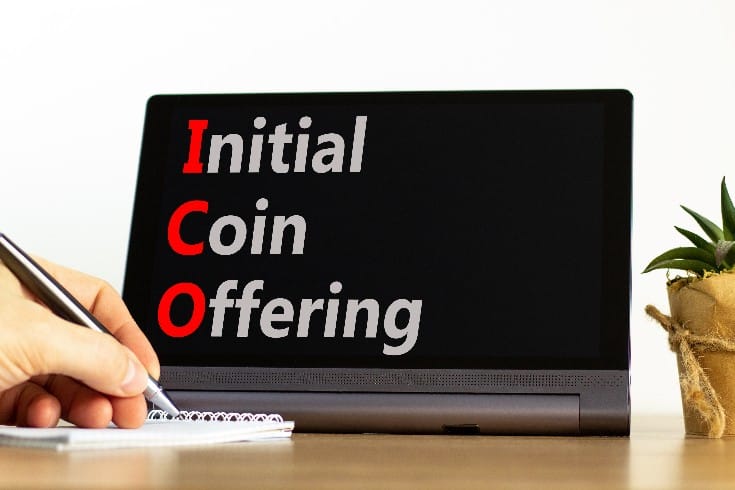Explanation of Companies with Audit and Supervisory Committees under Japanese Corporate Law

The Japanese Corporate Law offers multiple options regarding the governance structure of stock companies, reflecting the changing economic environment surrounding Japanese companies and the evolving demands from investors over time. Among these, the “Company with Audit and Supervisory Committee” system, introduced by the amendment to the Japanese Corporate Law enacted in 2015 (Heisei 27), has been steadily increasing in adoption as a significant choice in modern Japanese corporate governance. This system is designed to strengthen the supervisory function of the board of directors and enhance the transparency of management, with the intention of aligning Japanese corporate governance practices more closely with international standards. Its most distinctive feature is the establishment of a new body within the board of directors, known as the “Audit and Supervisory Committee.” This committee is comprised of a majority of external directors, and the directors who are members of the committee possess full voting rights within the board. This governance model represents a hybrid nature, situated between the traditional Japanese system and the systems commonly found in Western countries, making it a realistic and effective option for many companies. In this article, we will provide a comprehensive and expert explanation of the Company with Audit and Supervisory Committee system under Japanese Corporate Law, based on specific articles of the law. We will delve into the system’s background, legal framework, the composition and authority of the central Audit and Supervisory Committee, and compare it with other institutional designs. A deep understanding of this system is essential knowledge for all stakeholders involved in investing in Japanese companies or engaging in their management.
The Institutional Significance and Background of Companies with Audit and Supervisory Committees in Japan
The establishment of the system for companies with audit and supervisory committees in Japan is rooted in the flow of Japanese corporate governance reforms. This system was introduced as an intermediate option to bridge the institutional gap between the two main pre-existing organizational designs: the traditional “company with a board of corporate auditors” and the “company with nominating committees,” which is closer to the Western model.
The “company with a board of corporate auditors,” most familiar to Japanese companies, features a structure where independent corporate auditors (or a board of corporate auditors) audit the execution of duties by the board of directors. However, this model has long been questioned for its effectiveness, especially by foreign institutional investors. The main reason for this skepticism lies in the fact that corporate auditors are not members of the board of directors and do not have voting rights in board resolutions. Because auditors, who are supposed to be supervisors, cannot directly participate in the decision-making process of the board of directors, the highest decision-making body in management, their supervisory function was often seen as not sufficiently powerful.
To address this challenge, the “company with nominating committees” (formerly known as the “company with committees”) was introduced in the 2003 revision of the Commercial Code (at the time). This model mandates the establishment of three committees within the board of directors: the nominating committee, the audit committee, and the compensation committee, with a majority of each committee being composed of external directors. The aim was to clearly separate the supervision and execution of management, thereby enhancing the independence and objectivity of the supervisory function. However, this system required a fundamental shift from Japan’s traditional corporate culture, such as transferring the authority to decide on management personnel and compensation from the board of directors to independent committees, making it a high hurdle for many companies to adopt. As a result, its adoption was limited to a few progressive large corporations and did not become widely prevalent.
In this context, the challenge facing Japanese corporate governance was clear: to design a realistic system that could enhance the supervisory function of the board of directors to a level satisfactory to foreign investors while allowing companies to transition without excessive burden or confusion. The legislative response to this challenge was the introduction of the system for companies with audit and supervisory committees in the 2015 amendment to the Companies Act. This system extracts the most important element of the company with nominating committees model, namely, “an auditing body composed of a majority of external directors with voting rights in the board of directors,” and incorporates it into a more streamlined framework. Specifically, it does not mandate the establishment of nominating or compensation committees, nor does it require a strict separation between business execution and supervision. This allows companies to maintain the framework of their traditional management structure while strengthening the core of their supervisory function to meet international standards. The underlying philosophy of this system design is to eliminate the “governance discount” that Japanese companies face—where the corporate value is unfairly undervalued due to mistrust in the corporate governance system—and to promote investment from overseas based on a clear economic purpose.
The Legal Framework of Companies with Audit & Supervisory Committees in Japan
The institutional framework for companies with Audit & Supervisory Committees is strictly defined by Japanese Corporate Law. This legal framework ensures that when a company opts for this governance structure, a certain level of supervisory function is guaranteed.
Firstly, Article 2, Paragraph 11, Item 2 of the Japanese Corporate Law defines a “Company with an Audit & Supervisory Committee” as a “stock company with an Audit & Supervisory Committee.” Based on this definition, a company transitions to this organizational form by stipulating the establishment of an Audit & Supervisory Committee in its articles of incorporation.
Companies that choose this organizational form are required by Japanese Corporate Law to establish specific bodies. Primarily, they must establish a “Board of Directors” (Japanese Corporate Law Article 327, Paragraph 1). This is because the decision-making regarding the company’s business execution and the supervision of directors’ duties are assumed to continue to be carried out by the collegial body of the Board of Directors. Secondly, they must establish an “Accounting Auditor” (Japanese Corporate Law Article 327, Paragraph 5). The Accounting Auditor, typically an audit firm or certified public accountant, conducts external audits of the company’s financial documents. By legally mandating a dual-check system of the Audit & Supervisory Committee’s internal audit function and the Accounting Auditor’s external audit function, the aim is to enhance the reliability of financial reporting.
On the other hand, companies with Audit & Supervisory Committees are also clearly prohibited from establishing certain bodies. The most important of these is the provision that they must not establish a “Board of Corporate Auditors” or “Corporate Auditors” (Japanese Corporate Law Article 327, Paragraph 4). This is because the Audit & Supervisory Committee is positioned as the auditing body replacing the traditional Board of Corporate Auditors. Allowing the establishment of both would not only lead to ambiguity in the location of auditing authority and unclear responsibility but could also result in organizational inefficiency. Therefore, the Corporate Law forces companies to choose one of the two auditing systems, ensuring clarity in the governance structure.
These facts regarding the institutional design must be clearly stated in the commercial registry. Under the provisions of Article 911, Paragraph 3, Item 22 of the Japanese Corporate Law, stock companies must register details such as the fact that they are a Company with an Audit & Supervisory Committee, the names of the directors who are Audit & Supervisory Committee members, the names of directors who are not Audit & Supervisory Committee members, and the indication of those who are external directors. This ensures that the company’s governance structure is transparently disclosed to external stakeholders. This strict legal framework legally guarantees that the title of a Company with an Audit & Supervisory Committee ensures a specific level of governance substance.
Audit and Supervisory Committee: Composition, Authority, and Operation Under Japanese Corporate Law
The heart of a company with an Audit and Supervisory Committee in Japan lies in the committee itself. The design of this committee incorporates various legal requirements to ensure the effectiveness of its supervisory functions.
Composition of the Audit & Supervisory Committee
The composition of the Audit & Supervisory Committee is detailed in the Japanese Companies Act to ensure its independence and expertise. Firstly, the committee must be composed of three or more directors (Article 331, Paragraph 6 of the Japanese Companies Act). These members are referred to as “Directors who are Audit & Supervisory Committee Members.”
The most critical requirement for the committee’s composition is that the majority of its members must be “Outside Directors” (Article 331, Paragraph 6 of the Japanese Companies Act). Outside Directors are those who have not been executive directors or employees of the company, nor have they held positions in the parent or subsidiary companies, ensuring they maintain an independent stance from the management team. This requirement provides a systematic foundation for the Audit & Supervisory Committee to conduct audits from an objective perspective, distanced from the internal logic and vested interests of the management.
Furthermore, Directors who are Audit & Supervisory Committee Members cannot concurrently hold positions as executive directors, accounting advisors, managers, or other employees of the company (Article 331, Paragraph 3 of the Japanese Companies Act). This is another crucial provision to prevent conflicts of interest by strictly separating the audit and supervisory functions from the executive functions.
On the other hand, while traditional companies with a Board of Corporate Auditors were required to appoint one or more full-time Corporate Auditors, companies with an Audit & Supervisory Committee are not legally obligated to have full-time Audit & Supervisory Committee Members. This is based on the rationale that the Audit & Supervisory Committee, as an internal organ of the Board of Directors, always has access to the Board’s discussions and information, and assumes audits utilizing the internal control system, thus not necessarily requiring full-time members. However, many companies voluntarily appoint full-time Audit & Supervisory Committee Members to enhance the effectiveness of their audits.
The Duties and Authorities of Committees Under Japanese Corporate Law
The authority of the Audit & Supervisory Committee is not exercised independently by individual members but through resolutions made by the committee as a whole, based on the principle of a “collegial system.” This is a significant departure from the traditional Board of Corporate Auditors, where each auditor exercised independent authority under a “sole responsibility system.” The collegial system is expected to lead to more cautious and organized decision-making, based on the diverse insights of multiple members.
Article 399-2, Paragraph 3 of the Japanese Companies Act specifies the primary duties and authorities of the Audit & Supervisory Committee as follows:
- Auditing the execution of duties by directors and creating audit reports: This is the most fundamental duty of the Audit & Supervisory Committee. It audits whether directors (and accounting advisors in companies with such a system) comply with laws and the articles of incorporation and execute their duties appropriately for the benefit of the company, and compiles the results into audit reports.
- Determining the content of proposals regarding the appointment and dismissal of accounting auditors: The committee has the authority to determine the content of proposals for the appointment, dismissal, or non-reappointment of accounting auditors to be submitted to the shareholders’ meeting. This prevents management from appointing accounting auditors who may be favorable to them and ensures the independence of external audits through the Audit & Supervisory Committee.
- Deciding opinions on personnel and remuneration of directors other than Audit & Supervisory Committee members: The committee decides on the opinions to be expressed at the shareholders’ meeting regarding the appointment, dismissal, resignation, and remuneration of other directors (primarily those in charge of executing business). This means that the Audit & Supervisory Committee can exert significant influence over the composition of management and the design of incentives, which is an essential part of its supervisory function.
In addition to these duties, the Audit & Supervisory Committee also possesses significant “consent rights.” For example, when the Board of Directors decides on the remuneration of the accounting auditors, the consent of the Audit & Supervisory Committee is required (Article 399, Paragraphs 1 and 3 of the Japanese Companies Act). Furthermore, when the Board of Directors submits a proposal for the appointment of the next Audit & Supervisory Committee member to the shareholders’ meeting, the consent of the Audit & Supervisory Committee is also necessary in advance (Article 344-2, Paragraph 1 of the Japanese Companies Act). These consent rights are crucial legal tools to ensure that the Audit & Supervisory Committee maintains substantial influence over the management and external auditors it supervises.
The Authority of Individual Audit & Supervisory Committee Members
While the Audit & Supervisory Committee operates on a collegiate system, this does not mean that individual members have no authority whatsoever. The law skillfully designs the location of authority to balance the effectiveness of organizational audits with the responsibilities of individual supervisors.
Firstly, the authority to investigate the company’s business and property status, and to request reports from directors and employees (the right to investigate business and property status), belongs to the Audit & Supervisory Committee. For the committee to exercise this authority, a specific member (designated audit & supervisory member) is selected from among the members to carry out the investigation, as stipulated under Japanese Corporate Law (Article 399-3). In other words, individual audit & supervisory members cannot initiate an official investigation on their own without a resolution from the committee. This mechanism ensures that audit activities are controlled and carried out in an organized and planned manner.
However, on the other hand, all audit & supervisory members retain extremely important authorities that they can exercise independently, without the need for a committee resolution. These serve as a sort of “last line of defense” to respond to emergencies that could shake the soundness of the company.
- Reporting obligation to the Board of Directors: If a director is found to be engaging in fraudulent activities, or is likely to engage in such activities, or if there is a recognized violation of laws or the articles of incorporation, there is an obligation to report this promptly to the Board of Directors (under Japanese Corporate Law Article 399-4).
- Reporting obligation to the Shareholders’ Meeting: If a director is found to have legal violations or significantly unfair matters in the proposals or documents to be submitted to the Shareholders’ Meeting, the results of the investigation must be reported to the Shareholders’ Meeting (under Japanese Corporate Law Article 399-5).
- The right to request cessation of a director’s actions: If a director engages in acts outside the scope of the company’s objectives or other acts that violate laws or the articles of incorporation, and there is a risk that such acts could cause significant damage to the company, it is possible to request the director to cease such actions (under Japanese Corporate Law Article 399-6).
This structure of authority is based on a sophisticated balance where routine and planned audits are carried out efficiently through the committee as an organization, while the ultimate authority to prevent management from running amok is entrusted to the conscience and responsibility of individual members.
Two Types of Directors: Audit & Supervisory Committee Members and Other Directors
Understanding companies with an Audit & Supervisory Committee is crucial, as this system establishes two distinct categories of directors within the board, each with different roles and legal statuses. Specifically, these are the “directors who are Audit & Supervisory Committee members” and the “directors who are not Audit & Supervisory Committee members.” This distinction extends to various aspects, including appointment procedures, terms of office, and the process for determining remuneration.
Directors Serving as Audit & Supervisory Committee Members
Directors serving as Audit & Supervisory Committee members, as their title suggests, primarily oversee and audit the company as members of the Audit & Supervisory Committee. They are expected to act as “watchdogs,” maintaining an arm’s length from the execution of management decisions.
Their appointment must be carried out separately from other directors at the shareholders’ meeting, as stipulated under Japanese Corporate Law (Article 329, Paragraph 2). Shareholders exercise their voting rights with a clear understanding of who is in charge of supervision and who is responsible for execution.
To ensure their independence, their term is set at “two years” and cannot be shortened by the articles of incorporation or a resolution of the shareholders’ meeting (Japanese Corporate Law, Article 332, Paragraph 4). This fixed term prevents them from being easily dismissed due to pressure from the management, allowing for long-term auditing activities from a stable position. Furthermore, their dismissal requires a “special resolution,” which has stricter approval requirements than the usual ordinary resolution, thus providing a robust guarantee of their status.
Regarding remuneration, a system is in place to secure their independence. The remuneration for directors who are Audit & Supervisory Committee members is determined separately from other directors at the shareholders’ meeting, either as a total amount or based on a calculation method (Japanese Corporate Law, Article 361, Paragraph 2). The specific distribution of remuneration to each committee member is decided through discussions among the Audit & Supervisory Committee members, without intervention from the executive directors or other members of the management team (Japanese Corporate Law, Article 361, Paragraph 3).
Directors Other Than Audit & Supervisory Committee Members
Directors other than Audit & Supervisory Committee members primarily handle the execution of a company’s business operations. This category includes the executive management team, such as the CEO. They are the ‘executive officers’ responsible for advancing business plans and managing day-to-day operations.
Their term is set at “one year” under Japanese Corporate Law (Article 332, Paragraph 3). This short term means that they must seek reaffirmation of trust from the shareholders at the annual general meeting each year. This process facilitates the discipline of the management team by the shareholders and clarifies managerial accountability.
Regarding their compensation, the Audit & Supervisory Committee has the right to express an opinion when it is resolved at the shareholders’ meeting (Japanese Corporate Law, Article 361, Paragraph 6). By voicing their opinion on the appropriateness of the compensation, the committee aims to deter excessive payments to the management team.
Thus, establishing clear differences in terms of tenure and the compensation decision process is a legal design intended to create deliberate role differentiation and a healthy tension within the board of directors. By having one group of executive officers (directors other than Audit & Supervisory Committee members) accountable for performance within a short term, and another group of supervisory officers (directors who are Audit & Supervisory Committee members) with longer terms to ensure independence, the system aims to provide incentives for agility and results to the executive side, and caution and compliance adherence to the supervisory side.
The Duty of Care and the Business Judgment Rule for Directors Under Japanese Corporate Law
All directors, whether they are audit committee members or not, have a duty to perform their responsibilities with the care of a prudent manager based on their fiduciary relationship with the company (Japanese Civil Code Article 644, Japanese Companies Act Article 330). If a director breaches this duty of care and causes damage to the company, they may be held liable for damages (Japanese Companies Act Article 423, Paragraph 1).
However, inherently, there are risks involved in the management of a business. If directors shrink from risk out of fear, the company cannot expect to grow. Therefore, Japanese case law has established the concept of the “Business Judgment Rule” when questioning the responsibility of directors for their managerial decisions. This principle states that even if a company suffers damage as a result of a director’s business judgment, as long as the process of gathering and analyzing information leading up to that judgment, and the content of the judgment itself, are not grossly unreasonable, it does not constitute a breach of the duty of care.
As a leading case on this point, the decision of the Supreme Court of Japan on July 15, 2010 (2010), can be cited. This judgment indicated that when determining a director’s responsibility, the standard should be whether the decision was unreasonable for a manager in light of the circumstances at the time of the action. This principle applies to all directors, but the subject of their judgment varies. For executive directors, the focus is on “business decisions” such as business investments and strategic decisions, while for directors who are audit committee members, the focus is on “supervisory and auditing decisions,” such as the appropriateness of audit plans and whether they failed to notice any misconduct that should have been identified.
Delegation of Business Execution by the Board of Directors and Acceleration of Management in Japan
One of the most attractive benefits offered by companies with an Audit & Supervisory Committee in Japan is the potential for faster decision-making in management. This is made possible by the system of delegating authority from the board of directors to individual directors, a mechanism permitted by Japanese Corporate Law only within this framework.
As a principle, the board of directors of a stock company cannot delegate “important business execution decisions” to individual directors (Article 362, Paragraph 4 of the Japanese Corporate Law). This is based on the idea that decisions critical to the core of the company should be carefully deliberated by the board of directors as a collective body.
However, there are significant exceptions to this principle for companies with an Audit & Supervisory Committee (Article 399-13 of the Japanese Corporate Law). Under this provision, such companies may delegate all or part of the “important business execution decisions” to specific directors (usually the representative director) by a resolution of the board of directors if one of the following conditions is met:
- When the majority of the board of directors are external directors: If more than half of the board members are external directors, ensuring a very high level of independence, authority can be delegated by a board resolution alone (Article 399-13, Paragraph 5 of the Japanese Corporate Law). However, not many companies meet this requirement.
- When stipulated in the articles of incorporation: This method involves setting a provision in the articles of incorporation that allows the board of directors to delegate all or part of the decision-making for important business execution to directors by a board resolution (Article 399-13, Paragraph 6 of the Japanese Corporate Law). This is the more practical option for most companies.
With this delegation of authority, for example, the representative director can now make swift decisions on matters such as investment projects below a certain scale or business alliances, which previously required a resolution by the board of directors. This frees the board from the approval work of daily business execution, allowing it to focus on more fundamental and strategic discussions, such as formulating basic management policies and supervising business execution.
This system aims to balance the establishment of a strong supervisory structure with agile management. The law trusts that governance will be maintained even if a wide discretion is given to the management under the supervision of an independent and powerful supervisory body, the Audit & Supervisory Committee. In other words, companies can engage in a kind of transaction where they receive the “reward” of accelerated management by paying the “price” of accepting stricter supervision.
However, the law also specifies particularly important matters that cannot be delegated to directors under any circumstances. These matters, listed in Article 399-13, Paragraph 4 of the Japanese Corporate Law, include the following:
- Disposition and acquisition of significant assets
- Incurrence of substantial debt
- Appointment and dismissal of managers and other key employees
- Establishment, alteration, and abolition of branches or other significant organizational structures
These matters continue to require careful deliberation by the board of directors because they have the potential to shake the foundation of the company.
Comparing with Other Institutional Designs
To gain a deeper understanding of the personalityistics of companies with Audit & Supervisory Committees, it is essential to compare them with other major institutional designs recognized by Japanese corporate law, namely, “companies with Boards of Corporate Auditors” and “companies with Nominating Committees, etc.”
Firstly, the most fundamental difference from the traditional companies with Boards of Corporate Auditors lies in the bearer of the auditing function and their status. In companies with Boards of Corporate Auditors, the corporate auditors are not members of the Board of Directors and do not have voting rights in board resolutions. They supervise the execution of operations as an independent institution from the outside. In contrast, in companies with Audit & Supervisory Committees, the auditors, who are the bearers of the audit function, are formal members of the Board of Directors as directors and exercise voting rights on all proposals. This integrates the perspective of audit and supervision directly into the decision-making process of management. Additionally, while the authority of the corporate auditors is based on the independence of individual auditors in a “single-responsibility system,” the Audit & Supervisory Committee exercises its authority through collective decision-making as a “committee system,” which is another significant difference.
Next, let’s compare with companies with Nominating Committees, etc. Both share the commonality of having an internal committee of the Board of Directors, composed of a majority of external directors, responsible for auditing. However, there are significant differences in scope and structure. Companies with Nominating Committees, etc., are mandated to establish a total of three committees: the “Nominating Committee” that decides on the appointment and dismissal of directors, and the “Compensation Committee” that determines executive compensation, in addition to the Audit Committee. In contrast, companies with Audit & Supervisory Committees are only required to establish the Audit & Supervisory Committee. Furthermore, in companies with Nominating Committees, etc., the execution of company operations is handled by “executive officers” who are separate from the Board of Directors, which focuses solely on supervision, and a strict “separation of supervision and execution” is legally enforced. In companies with Audit & Supervisory Committees, such separation is not mandatory, and directors other than the Audit & Supervisory Committee members handle the execution of operations. Therefore, companies with Audit & Supervisory Committees are considered to have a more flexible system that is easier to introduce with fewer changes from the existing organizational structure compared to companies with Nominating Committees, etc.
Organizing these differences, it becomes clear that companies with Audit & Supervisory Committees break away from the structure of “separation of the Board of Directors and the auditing institution” seen in companies with Boards of Corporate Auditors, while integrating the supervisory function into the Board of Directors without requiring the fundamental organizational restructure demanded by companies with Nominating Committees, etc., making it a balanced system.
The table below compares the main features of these three major institutional designs.
| Feature (Item) | Companies with Audit & Supervisory Committees | Companies with Boards of Corporate Auditors | Companies with Nominating Committees, etc. |
| Main Auditing Institution | Audit & Supervisory Committee | Board of Corporate Auditors | Audit Committee |
| Composition of the Auditing Institution | 3 or more directors, a majority of whom are external directors | 3 or more corporate auditors, a majority of whom are external auditors | 3 or more directors, a majority of whom are external directors |
| Voting Rights of Auditors/Committee Members in the Board of Directors | Yes | No | Yes (since committee members are directors) |
| Executive Body | Directors other than Audit & Supervisory Committee members & Representative Director | Directors & Representative Director | Executive Officers & Representative Executive Officer |
| Term of Directors | Audit & Supervisory Committee members: 2 years Others: 1 year | 2 years (flexible by articles of incorporation) | 1 year |
| Delegation of Significant Business Execution | Possible with conditions | Generally not allowed | Legally, broadly delegated to executive officers |
Transitioning to a Company with an Audit & Supervisory Committee in Japan: Advantages and Considerations
For companies in Japan considering a transition to a company with an Audit & Supervisory Committee, it is crucial to accurately understand the advantages and practical considerations involved in this significant management decision.
Main Advantages
The greatest advantage of this system is the substantial strengthening of the supervisory function of the board of directors. Audit & Supervisory Committee members have voting rights as directors and participate directly in board discussions, embedding a supervisory perspective into the decision-making process and enhancing the quality of discussions.
Secondly, the system improves management agility. As mentioned earlier, if certain conditions such as those stipulated in the articles of incorporation are met, the authority to make important business execution decisions can be delegated to individual directors, enabling swift and flexible decision-making in response to changes in the market environment.
Thirdly, there is the potential for improved evaluations from foreign investors. Japan’s statutory auditor system is less familiar overseas, and its effectiveness has been questioned. However, the form of having an audit committee within the board of directors is closer to the governance models of Europe and America, making it more understandable for foreign investors. Indeed, global proxy advisory firms have positively evaluated this system, which could lead to increased fundraising from global capital markets and enhancement of corporate value.
Fourthly, there is the potential for more efficient executive composition. Traditional companies with a board of statutory auditors needed to appoint both external directors and external auditors to meet the demands of the Corporate Governance Code as listed companies. In a company with an Audit & Supervisory Committee, external directors who are committee members can fulfill both roles, allowing for a robust governance structure with fewer executives and the potential for cost reductions in executive compensation.
Practical Considerations
On the other hand, there are several considerations when transitioning. Firstly, transitioning to the new system requires a considerable amount of time and cost for shareholder meeting resolutions to change the articles of incorporation, revising the officer appointment process, and establishing internal regulations.
Secondly, the term of directors other than the Audit & Supervisory Committee members becomes one year, which means that management must gain the confidence of shareholders annually, potentially increasing the pressure for short-term performance. This includes the risk of undermining management stability.
Thirdly, there is the challenge of ensuring the effectiveness of the Audit & Supervisory Committee. Since there is no obligation to have full-time members, there is a risk that the committee’s activities may become merely formal. Establishing a secretariat to support the committee’s activities and creating an environment where non-full-time external directors can obtain sufficient information and be active is key to making the system function effectively.
Fourthly, there is the difficulty of collective decision-making. Unlike the sole responsibility system of statutory auditors, the Audit & Supervisory Committee’s decision-making is based on collective agreement, which can make swift judgment difficult in urgent situations. Additionally, if there is a conflict of opinions among members, there is a risk that the auditing function may stall, which must be considered.
Finally, there is the universal challenge of securing the right talent. External directors, who make up the majority of the Audit & Supervisory Committee, are required to have financial and accounting knowledge, a deep understanding of the company’s business, and above all, the high discernment to express their opinions independently and without hesitation from the management. Securing such qualified personnel remains a significant challenge for many companies.
Conclusion
Companies with an Audit & Supervisory Committee represent a sophisticated and powerful option for corporate governance under Japanese corporate law. Their core value lies in strategically balancing a robust board of directors’ oversight function, which is internationally recognized, with a flexible management structure that can adapt to rapidly changing business environments. This system addresses the challenges of effectiveness in the supervisory function that traditional companies with a Board of Corporate Auditors faced, without requiring the fundamental organizational changes demanded by companies with Nominating Committees. Therefore, it has become a realistic and attractive option for many Japanese companies. However, to fully leverage its benefits, it is essential to sincerely address practical issues such as the management of directors’ terms, establishing operational systems to support the effectiveness of committees, and most importantly, securing competent external directors to carry this system. Choosing and building the optimal governance structure for one’s company is a critically strategic decision in the pursuit of sustained corporate value enhancement.
Monolith Law Office has a wealth of experience in advising a diverse range of domestic and international clients on matters related to corporate governance in Japan, including the implementation and operation of companies with an Audit & Supervisory Committee. Our firm employs several English-speaking attorneys with foreign legal qualifications, enabling us to explain the complex issues encompassed by Japanese corporate law from an international perspective. We provide specialized and practical support to help clients construct the most suitable governance structure for their business objectives. If you require legal support on the content discussed in this article, please do not hesitate to consult with our firm.
Category: General Corporate





















